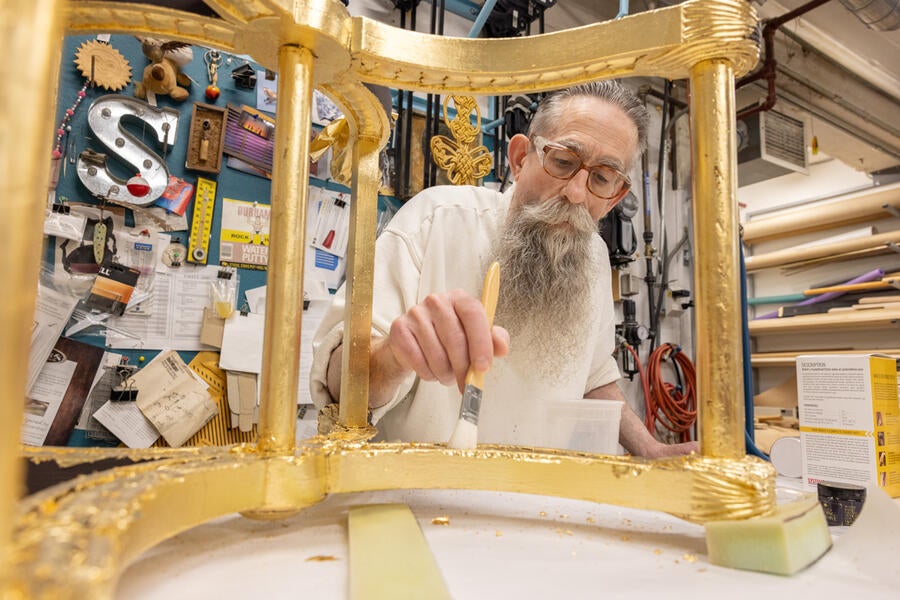Community, Leadership, Experimentation, Diversity, & Education
Pittsburgh Arts, Regional Theatre, New Work, Producing, Copyright, Labor Unions,
New Products, Coping Skills, J-O-Bs...
Theatre industry news, University & School of Drama Announcements, plus occasional course support for
Carnegie Mellon School of Drama Faculty, Staff, Students, and Alumni.
CMU School of Drama
Tuesday, April 16, 2024
An artisan’s magic brush
It's Your Yale: Behind the stage of the University Theatre on York Street sits a small properties (props) shop. Packed with a variety of hand and power tools and active projects, it is where David Schrader creates all manner of props, special effects, or set dressings for Yale Repertory Theatre stage productions.
Subscribe to:
Post Comments (Atom)

2 comments:
Props is one of the areas in theater that I know the least about, but I am still absolutely fascinated by the work that gets done in the world of props. Props managers need to have such a wide variety of skills and I find it very impressive that a single person can learn so many different techniques - whether that be carpentry, mold making, casting, upholstering, painting, or more. They have such a good grasp of different materials. It is a job that I could not do as I just wouldn't be able to focus on all those many small things at once, but I still very much admire the skill and the work that is done. Something I am always curious about is the overlap between props, costumes, and scenery, and what causes something to be classified as one of those. I would think things could get very difficult when different departments are fighting over taking (or not taking) a certain piece).
I wanna work in a props shop when I’m older and I love working in the CMU Props shop currently. I think learning how to alter things into other things like David Shrader does who is described like an old wizard who lurks behind the Geffen theatre in a small lab. I think the generating of static to pick up the gold leaf is really cool because as someone who failed when trying to use a similar gilding method for a Susan project it would’ve been great to know that hack. I think props people are so cool because they have to know almost every area to do their job from sewing, embroidery, upholstery, construction, detailing, painting, design, historical period knowledge, tool pathing, engineering, electrical knowledge, wood working, and often problems solving for the strangest requests as theatre often asks for everyday objects to do the wildest things.
Post a Comment